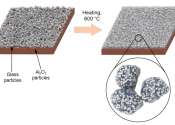Why public policy must adjust to new energy source preference
Support for renewable energy sources such as solar and wind is linked to a belief that climate change will be catastrophic, while supporters of nuclear power tend to be less concerned about climate risks, says a study from ...
Nov 27, 2023
0
9









